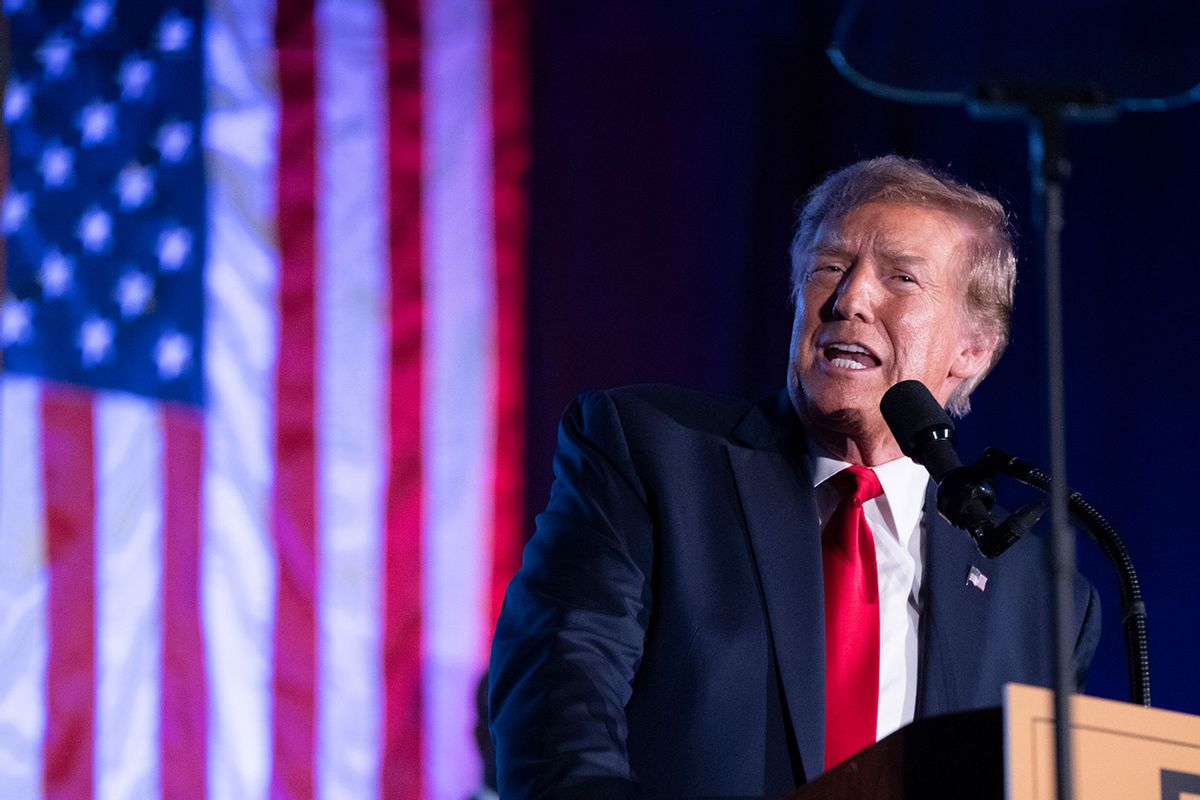Donald Trump’s sentencing for his hush money conviction was supposed to be Thursday. Instead, the former president asked a New York judge to dismiss his criminal conviction on 34 felony counts.
In a 52-page filing, lawyers for the presumptive GOP nominee argued that the trail was “tainted” by evidence and testimony that's inadmissible after the recent Supreme Court ruling that grants presidential immunity for official acts, ABC News reported.
"No President of the United States has ever been treated as unfairly and unlawfully as District Attorney Bragg has acted towards President Trump in connection with the biased investigation, extraordinarily delayed charging decision, and baseless prosecution that give rise to this motion," Trump's attorneys wrote, Axios reported.
The defense lawyers argued that the prosecutors in the hush money trial violated the Supreme Court’s immunity ruling by using evidence related to official acts, specifically hinging their argument on the testimonies of White House aides like Hope Hicks, the former White House Communication Director.
Trump’s lawyers argued that Hick’s testimony was “categorically inadmissible,” since she was advising Trump on official communications.
“Because of the implications for the institution of the Presidency, the use of official-acts evidence was a structural error under the federal Constitution that tainted [the District Attorney's] grand jury proceedings as well as the trial," Trump’s lawyers Todd Blanche and Emil Bove wrote.
The former president’s attorneys initially previewed their plans to ask the verdict be tossed in a page-long letter to Judge Juan Merchan last week. In their filing, made public Thursday, they detailed why the Supreme Court’s immunity ruling applies to the New York case — which concerns Trump’s conduct as a presidential candidate before the 2016 elections.
Judge Merchan decided to delay Trump’s sentencing until September 18, to consider the defense’s arguments.
We need your help to stay independent
Lisa Rubin, a legal analyst who often appears on MSNBC, suggested Thursday that the impact of the Supreme Court’s decision on the hush money trial shouldn’t be taken lightly. She explained that this “gift to Trump” could let him escape his conviction and escape scot-free, RawStory reported.
"There are places their rubber band of official conduct is stretched too far. But they have another argument that strikes me as more faithful to the majority opinion — and could knock out the verdict entirely, regardless of whether certain evidence should not have come in," she wrote on X. "And it's this: The majority says that immunity decisions must be made at the 'outset' of the case; otherwise, a president entitled to immunity would have to bear the burdens of pre-trial discovery and litigation, which is no immunity at all."



Shares